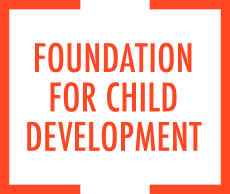https://www.fcd-us.org/challenging-common-myths-about-young-english-language-learners/
The Foundation for Child Development’s Advancing PreK-3rd Series No. 8
Educational outcomes for young English Language Learners (ELL) from ages three to eight can improve if we abandon outdated misconceptions and inform our practices with current scientific findings.
Linda Espinosa, former Professor of Early Childhood Education at the University of Missouri-Columbia, challenges six commonly held beliefs about the development of young children who are learning English as their second language and presents research evidence drawing from a variety of disciplines that can better shape education policies for all children.
Espinosa concludes:
- All young children are capable of learning two languages. Becoming bilingual has long-term cognitive, academic, social, cultural, and economic benefits.
- Dual language programs are an effective approach to improving academic achievement for ELL children while also providing benefits to native English speakers.
- Hispanic parents value high-quality early education, and will enroll their young children if programs are affordable and accessible.
A Chinese translation was completed December 2010.
